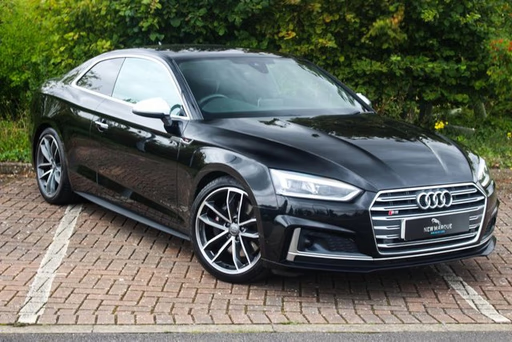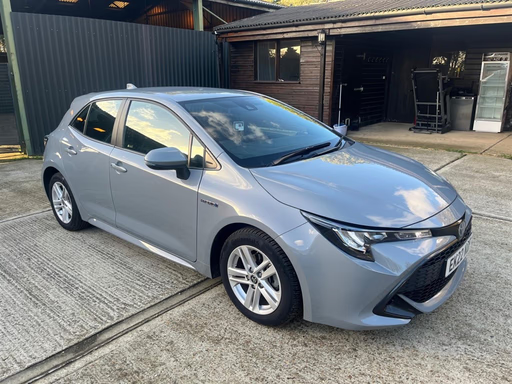Step 1 - Setting a budget for your first car
Insurance
Fuel costs
Servicing
Unexpected repairs
MOT
Tax
Car insurance
All cars have an insurance group number between 1 and 50, with 1 being the cheapest to insure and 50 the priciest. An inexpensive car with a small engine will be cheaper to insure than a larger, more expensive car. There are other factors that will affect your insurance premium too, including the job you have and where you live. Car insurance is usually paid annually, but most providers will let you pay in monthly instalments too, if that’s easier to manage.
Fuel costs
Day-to-day costs such as petrol/diesel and maintenance costs should also be factored into your budget. The cost of fuel will be affected by the way you drive, the fuel efficiency of the car, the fuel type (petrol is cheaper than diesel) and the price of fuel. If you drive a powerful diesel car you can expect to spend more on fuel than someone who drives a compact petrol-fuelled city runaround.
Servicing, MOT and tax
You'll also have to service, MOT and tax your car. The cost of servicing varies widely, according to the age, make and model of the car, the type of service you opt for and the dealership. Of course, any maintenance issues incurred during the service will impact the overall cost, too. If your car is over three years old, it will need an annual MOT. The MOT itself will cost around £50 but you may incur other maintenance charges on top, depending on whether the MOT flags any issues. While the MOT is a legal requirement to ensure your car is roadworthy, the annual service is not – although we would strongly recommend servicing your car annually to keep it in good condition.
Step 2 - Choosing your first car
Once you’ve worked out your budget you can start to think about what car is best for you.
What type of car should you buy?
Next on your to-do list is to figure out what kind of car you’d like. Hatchback, saloon, estate or SUV? There are a number of factors that could affect your preference, such as:
What types of electric cars are there?
Think carefully about your lifestyle so that you can match your car to your needs. Consider too what you are realistically capable of driving: it would be unwise, for example, to buy a souped up 3 litre sports car if you are unused to driving powerful cars, however tempting it might be!
Suiting your needs
Whether you live in the city or the country. If you are a city-dwelling single person and don’t regularly need to drive far, then a compact hatchback might suit your needs best.
Space needed
Whether you have a family. If you need a spacious family car, then an estate or an SUV is a good choice.
Usage frequency
If you need a car to drive long distances every day, or simply pop to the shops once a week. If you frequently drive long distances, then a saloon might be the better option.
Types of cars
Here’s a quick breakdown of the types of car you could buy:
Hatchback
Traditionally hatchbacks are compact, low to the ground cars with two to four doors.
Economical to buy and to run, they are ideal for city driving and are very popular first-time buys.
Saloon
These are generally larger and more expensive than hatchbacks, with more powerful engines and sleek designs.
Estate
Practical and versatile, estates are often a great option for families with the capacity to carry lots of luggage and other bulky items.
SUV
An acronym for sports utility vehicle, SUVs incorporate aspects of both roadgoing cars and off-road vehicles, such as four-wheel drive and high ground clearance.
They are typically raised up from the ground to give a higher driving position, with a large boot space and roomy interior.
Electric
Hybrid electric vehicles (HEVs) combine an internal combustion engine with one or more electric motor.
Fully electric cars and plug-in hybrids need to be plugged into an electric charger to recharge the batteries; HEVs automatically charge as the car is driving.
Step 3 - Where to buy your first car
Dealers
Franchised dealers usually specialise in a single make of car, although they may sell second-hand stock from other brands. Used cars will only be a few years old and will generally be covered by a warranty – you won’t find very old or very cheap cars at a franchised dealership. Independent dealers aren’t wedded to one brand and are more likely to stock slightly older cars, so you may have a better choice for a smaller budget at an independent.
Private sellers
This is usually the cheapest way to buy a car, but your legal rights are limited should you buy a dud. You may not benefit from any warranty either, unless the car is still covered by its original.
Online retailers
Online showrooms offer a wide choice of cars, although you won’t be able to see the vehicles in the flesh. However as there’s no need to travel to a showroom, the buying process is convenient and hassle free.
As always, when making an important purchase, be aware of scams and fraud and how you can avoid them.
Step 4 - How to finance your first car
The simplest way to buy a car is in cash – but unless you have access to a lump sum, can dip into savings, or perhaps lean on the bank of mum and dad, many of us don’t have that luxury. Today, car finance is the most popular way to buy a car in the UK, and it’s a great option for first-time buyers too; with fixed monthly payments you’ll know exactly what you are paying for the duration of the agreement, with no hidden extras. Find out more about different types of car finance here.
Step 5 - Final checklist for your first car
Whichever route you take, it’s important to do your due diligence before agreeing to buy a car.
If you buy from a private seller or a dealer, go for a test drive to be sure that you like the feel of the car and to check that everything works. While you won’t be able to test drive a car bought from an online showroom, most online retailers will offer a moneyback guarantee within a certain timeframe instead.
Found your car? Here’s your final checklist:
Check the registration document
Check the handbook is present
Get the full terms of the deal in writing
Confirm any warranty and get it in writing












